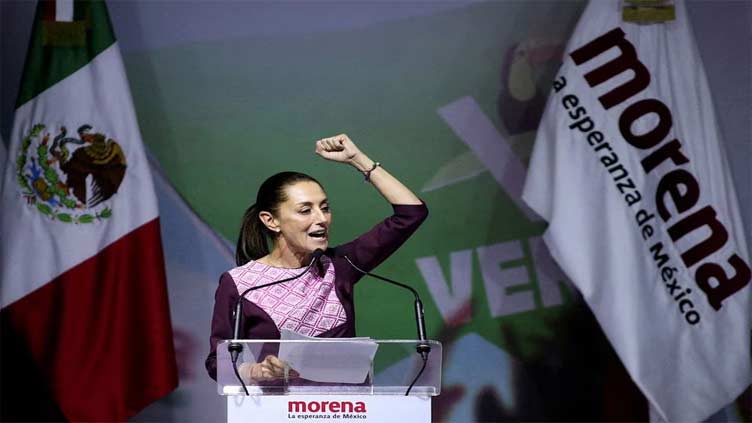Mexico's Sheinbaum holds 18 point lead in presidency race - poll

World
Sheinbaum has the firm backing of popular President Andres Manuel
MEXICO CITY (Reuters) - Former Mexico City Mayor and ruling party candidate Claudia Sheinbaum holds an 18 percentage point lead over her nearest rival in the race to win Mexico's next presidential election on June 2, an opinion poll showed.
A survey of 1,620 Mexicans between Oct 19 and Oct 28 by newspaper El Financiero showed Sheinbaum, who represents the leftist National Regeneration Movement (MORENA), polling 46% support, with her rival Xochitl Galvez at 28%.
Sheinbaum has the firm backing of popular President Andres Manuel Lopez Obrador, who cannot seek reelection. Under Mexican law, presidents may only serve a single six-year term.
Galvez, an unconventional Senator and businesswoman, fronts a three-way opposition alliance ranging from the center-left to the center-right, including two former ruling parties.
A third presidential hopeful, Nuevo Leon state Governor Samuel Garcia of the center-left Citizens' Movement (MC) party, was polling 8 percent support. The remaining 18 percent of respondents did not express a preference.
Sheinbaum, a trained scientist, has pledged to consolidate the legacy of Lopez Obrador. He has built his popularity around increased welfare spending, and worked to give the state greater control of key sectors of the economy, notably energy.
Galvez backs a more business-friendly approach and wants to encourage greater private sector investment.
If either woman is elected, they would make history as the first female leader of Latin America's no 2 economy.
The two candidates' personal backgrounds have generated plenty of interest in Mexico and abroad. Galvez grew up in a family with indigenous roots, while Sheinbaum's grandparents were Jewish immigrants from eastern Europe.
Respondents in the newspaper's poll suggested that those characteristics did not play in either candidate's favor.
Only 32% said that being of indigenous origin was an advantage, compared with 45% who took the opposite view. Meanwhile only one in five believed that being of Jewish origin was advantageous, while fully 51% saw it as a disadvantage.
By contrast, 76% saw having training in business as an advantage and 65% said the same of having a background in science, according to the poll, which was a mix of face-to-face and telephone interviews spread over the survey period.
Some 68% also said proposing a change was an advantage.
El Financiero said its poll had an overall margin of error of plus or minus 2.4 percentage points.


